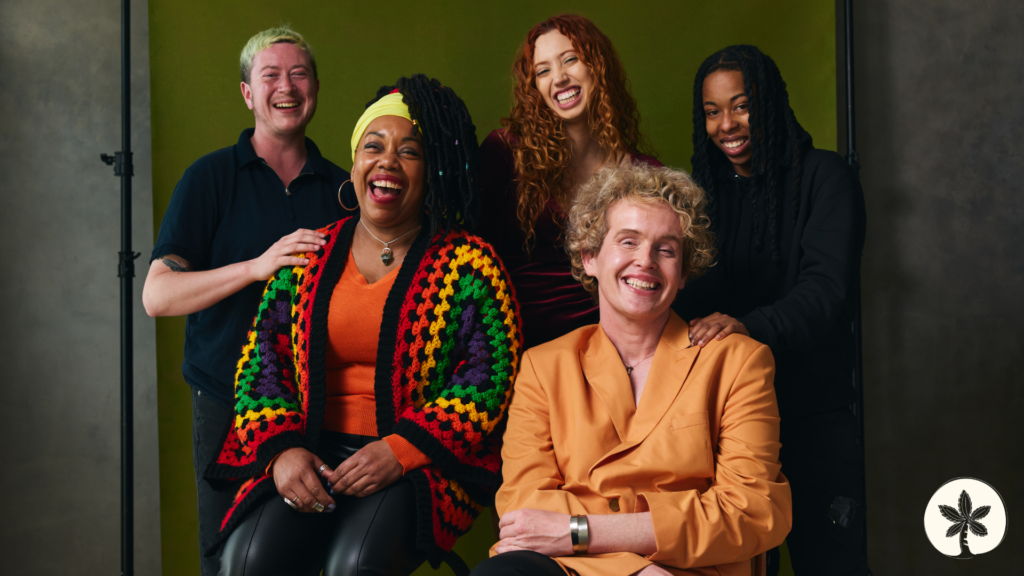The Journey of Self-Acceptance: How Therapy Can Help with LGBTQ+ Affirming Support at Saname Counseling
IntroductionThe journey toward self-acceptance can be complex for anyone, but LGBTQ+ individuals often face unique challenges on this path. Navigating issues related to identity, acceptance, and belonging can be daunting, especially when compounded by societal pressures, family dynamics, and internalized shame. Fortunately, therapy offers a safe and affirming environment to explore these challenges, fostering self-acceptance, resilience, and empowerment. At Saname Counseling in McAllen, Texas, we are dedicated to providing LGBTQ+ affirming therapy that supports individuals on their journey to self-acceptance. In this article, we’ll explore the unique mental health challenges faced by LGBTQ+ individuals, how therapy can promote self-acceptance, and the ways Saname Counseling offers a safe and empowering space for all clients. Understanding the Unique Mental Health Challenges Faced by LGBTQ+ Individuals LGBTQ+ individuals often experience specific mental health challenges that stem from societal stigma, discrimination, and pressures related to identity. Recognizing these unique factors is essential for providing effective, compassionate mental health care. 1. Discrimination and Stigmatization Many LGBTQ+ individuals face discrimination in multiple areas of their lives, including in their communities, workplaces, schools, and even within their own families. This discrimination can lead to feelings of alienation, shame, and low self-worth. Furthermore, experiences of homophobia, transphobia, and other forms of prejudice can contribute to anxiety, depression, and post-traumatic stress disorder (PTSD). 2. Internalized Shame Internalized homophobia or transphobia occurs when LGBTQ+ individuals absorb societal stigma and negativity, leading to self-critical thoughts and feelings of unworthiness. This internalized shame can make self-acceptance challenging and may contribute to low self-esteem and even self-destructive behaviors. 3. Family Rejection and Social Isolation For many LGBTQ+ individuals, family rejection is a painful reality. Being rejected or misunderstood by loved ones can lead to feelings of isolation and a lack of support, which are essential for mental and emotional well-being. Social isolation can also occur in situations where LGBTQ+ individuals feel unsafe or unsupported within their communities. 4. Fear of Coming Out The decision to come out is often accompanied by fear, uncertainty, and anxiety. The risk of negative reactions or rejection can make it difficult for LGBTQ+ individuals to embrace their authentic selves fully. Many individuals may feel pressured to hide aspects of their identity, leading to feelings of loneliness and internal conflict. 5. Higher Rates of Mental Health Conditions Due to the cumulative impact of these challenges, LGBTQ+ individuals experience higher rates of mental health issues such as depression, anxiety, substance use disorders, and suicidal ideation compared to their non-LGBTQ+ peers. These statistics highlight the urgent need for accessible, affirming mental health support tailored to the unique experiences of LGBTQ+ individuals. The Role of Therapy in Promoting Self-Acceptance and Resilience Therapy plays a vital role in helping LGBTQ+ individuals navigate the challenges associated with self-acceptance and mental health. By providing a safe and supportive environment, therapy enables individuals to explore their identities, build resilience, and develop tools for managing stress and adversity. Creating a Safe Space for Self-Exploration Therapy offers a confidential, non-judgmental space where LGBTQ+ individuals can openly explore their feelings, experiences, and identities. This safe space is essential for processing difficult emotions, addressing internalized shame, and discussing fears related to coming out or being authentic. For many LGBTQ+ individuals, therapy is one of the few places where they feel truly understood and accepted. Building Resilience and Coping Skills Therapists can equip LGBTQ+ clients with resilience-building techniques that empower them to face challenges with confidence. By developing healthy coping mechanisms, individuals learn to handle external stressors, reduce self-criticism, and establish boundaries that protect their well-being. Therapy also fosters self-compassion, allowing clients to approach themselves with kindness and understanding as they navigate their journey. Enhancing Self-Acceptance and Empowerment Through therapy, LGBTQ+ individuals learn to embrace their identities, cultivate self-acceptance, and build positive self-worth. Therapeutic techniques that encourage self-reflection and self-compassion help individuals reconnect with their authentic selves, fostering a sense of pride and empowerment. Techniques Used in LGBTQ+ Affirming Therapy Therapists use a range of therapeutic techniques to address the unique needs of LGBTQ+ clients. These approaches are designed to help individuals process their experiences, build resilience, and cultivate a positive relationship with themselves. 1. Cognitive-Behavioral Therapy (CBT) CBT is an effective therapy for addressing negative thought patterns, such as internalized shame, self-criticism, and self-doubt. Through CBT, clients learn to identify and challenge unhelpful beliefs, replacing them with positive and affirming thoughts. This process can be transformative for LGBTQ+ individuals, helping them break free from self-judgment and move toward self-acceptance. 2. Mindfulness Practices Mindfulness techniques, such as meditation, deep breathing, and grounding exercises, help clients stay present and centered. Mindfulness can reduce anxiety, improve emotional regulation, and foster self-awareness, making it easier for individuals to approach their feelings with compassion and curiosity. For LGBTQ+ clients, mindfulness practices can create a sense of inner peace and help mitigate the impact of external stressors. 3. Trauma-Informed Care Many LGBTQ+ individuals experience trauma from discrimination, rejection, and other adverse experiences. Trauma-informed care recognizes these experiences and provides a compassionate, sensitive approach to healing. This approach helps clients process traumatic memories, reduce triggers, and develop a greater sense of safety and control in their lives. 4. Affirmative Therapy Affirmative therapy explicitly supports and celebrates LGBTQ+ identities, helping clients embrace their sexuality, gender identity, and personal values. This approach validates the unique experiences of LGBTQ+ individuals and fosters a therapeutic environment that is inclusive, empowering, and growth-oriented. Addressing Internalized Shame and Building Self-Compassion Internalized shame is a significant barrier to self-acceptance for many LGBTQ+ individuals. Therapy plays a crucial role in helping clients address and dismantle this shame, replacing it with self-compassion and pride. Understanding Internalized Shame Internalized shame often stems from societal stigma and negative messaging about LGBTQ+ identities. Over time, this stigma can lead individuals to adopt self-critical beliefs, viewing aspects of themselves as flawed or “wrong.” Therapy helps clients understand how internalized shame develops and empowers them to challenge these harmful beliefs. Cultivating Self-Compassion Therapists guide LGBTQ+ clients in practicing self-compassion, which involves treating oneself with kindness and understanding. By learning to



